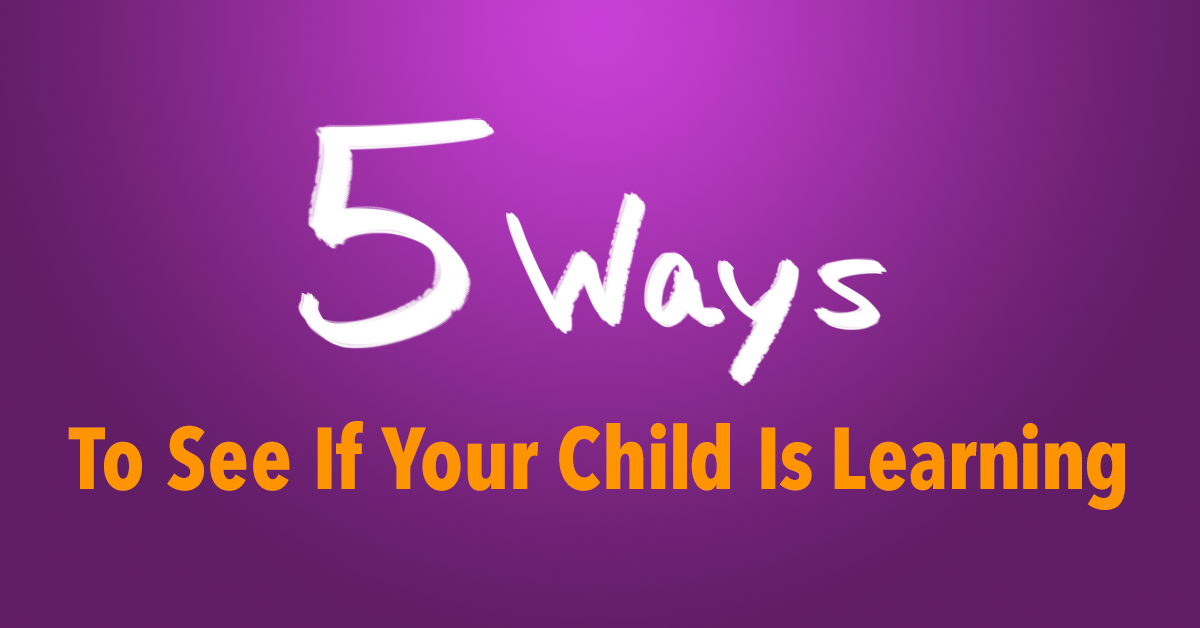Have you ever instructed your child to clean their room without checking on their work? Would you let your child bake some cookies by themselves before you observed that they’ve mastered measuring ingredients or using the oven? In the same way, we have to check on our children to make sure they’ve learned what we’re trying to teach. What we need are assessments.
An assessment is simply a way of finding out if your child learned what you set out to teach. Most of the time we think about assessments as only tests and quizzes. In reality you can assess what your child has learned in a number of ways, some of which are fun for her.

What Kinds of Assessments?
So if we want to see if our children, particularly the young ones, have learned something and we don’t want to give them quizzes every day, how do we see what they’re learning? We can use an assessment that matches our child’s way of learning. Here are five fun ways to see if your child is learning what you’re teaching.
- Ask Questions
Most children know far more than they can write on the page. So ask them questions that they can respond to verbally. You shouldn’t grade these questions. If your child reads about the life cycle of a butterfly in science, ask them what the four stages of the butterfly’s life are. If they miss the question, have them reread the appropriate paragraph. Our teacher’s editions provide great suggested questions you can use to see if your children understood what they were reading.
- Draw pictures
This is what I did with the 5 themes for Heritage Studies 2. I didn’t expect my daughter to memorize a definition she could write out on a test, but I wanted to see that she got the ideas. So I had her draw pictures of something from history, geography, culture, economics, and American citizenship. My daughter likes to draw, so she loved this activity.
- Act out an idea
If you want to see if your child understood a story they’ve read, have them act it out. If your child likes pretending, they’ll love playing the story, and you might get a chuckle yourself. In the meantime, you’ll know they understood the Reading story.
- Make something
When we learned about producers and consumers in Heritage Studies 2, I had my daughter create a “business” and a flyer that advertised what she could produce. She decided to make paper dogs and sell them for 10 cents each. I bought one of her paper dogs and asked “who was the producer, and who was the consumer?”
- Use the skill
When your children learn how to use a math concept, have them use it. So if we’ve baked 24 brownies for Bible Club and we’re expecting 18 children, I ask my daughter how many extra brownies we should expect to have. If we have 13 children, I ask if we have enough brownies to give each child two.
Can you think of other fun, hands-on ways to assess what your child’s learned?
Very creative ways of assessing how your child is doing with out testing. When I was taking an oral exam in college, I froze and couldn’t remember anything. My professor started talking with me, and at the end of an hour he said you made an A on your final. While we were talking, he steered the conversation toward things that were covered in class. It is easier to remember when you are not stressed about grades.